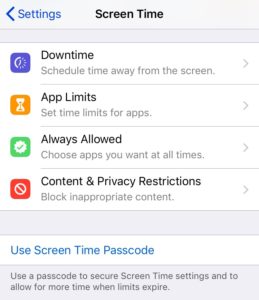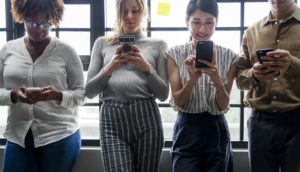
3 Reasons Why I’m Sick of the Attention Economy (and you should be too)
Our distracting world is using attention economy to keeps us glued to our phones and computers. It’s time for some damage control.
You’re scrolling through your Instagram feed, and posts from your favorite pop stars’ concert tours grab your attention. Wow, they’re thinking about you, right? You know they want you and only YOU to attend and have a great time with them. Of course, they’re being so nice to you, you’re their biggest fan, right?
Wrong!
You and I know that’s not how it is. Advertisers and markets around the globe must grab your attention to make a profit. So, just as your favorite popstars target you to spend money and buy concert tickets to increase their revenue, a midday TV commercial targets housewives’ desires.
Targets. That’s who we are, ultimately:
Welcome to the world of Attention Economy. A world constantly trying to get your attention. Read on to find out what exactly it is and why you should be more aware of it.
As Dave Alton puts it on his article on The Irish Times,
“[attention economy]’s a theory that stipulates which marketing communications – digital or otherwise – should be focused on attracting consumer “eyeballs” and maintaining consumer engagement with your brand’s activities.”
Now, don’t be too alarmed. Sure, marketers are using us but, ultimately, we still have some control over what and who we give our attention to. Stepping up and taking control can really make a difference in how we perceive the world.
Listed below you will find three main reasons why I decided to raise awareness about this topic. There are a lot more, but these are the ones most important to me, so I hope you enjoy the rest of the reading.
Reason #1: Our focus span is getting shorter and shorter
As millennials, we’ve learned to “skim read” texts since elementary school, to go through as many as possible. We apply this same concept when talking about social media. Scrolling through our newsfeed on Instagram, Facebook, Twitter (and so on) gives us the illusion of having acquired information when in fact we only retained a few keywords.
In college, we’re required to read up to 300 pages a week, as Jones mentions in her NY Times article. Reading becomes a challenge when social media trains you focus on only a few catchy words and disregard the rest of the content as mere “filling”. We struggle to focus, and markets are playing with it. Some social media platforms are trying to do some damage control by introducing settings that limit your screen time. When social media apps introduce “screen time limit” settings, is it really going to be enough to get our lives back?

However, not much can be done until we’re aware of what’s happening and actively fight to gain back our focus.
Reason #2: We don’t look into each other’s faces anymore
Visualizza questo post su Instagram
Doesn’t this feel familiar: you enter a restaurant and you notice that half of the people there (no matter their age) are too busy scrolling through their phones to start a conversation with the others at the table. As Jane E. Brody puts it, we’re “hooked on our smartphones.” It’s true, we often use our phones to chat with others, so the social component in our society is still there. However, this phenomenon seems to hurt personal interaction because, while you can write and rewrite a text before sending it, you have to “improv” in real life. We got to the point that, when asked, one in three people would rather give up sex life altogether than their phone usage. Now, I highlight this issue because it is directly related to Attention Economy. Social platform algorithms can care less whether we are still social or are having sex. The more we scroll down and “like,” the more profit marketers and Silicon Valley moguls make.
Reason #3: Social media are pulling the strings of our happiness
This reason is at the bottom of my list, but it might as well be the first. We can’t let the number of likes we get on a social media platform dictate the mood we’re feeling. Whenever we post a picture on Instagram, or we tweet, there’s always a small hope to become “viral” in the mind of many. The reaction we get when a celebrity likes our picture or retweets us unveils our insecurities.
Former Design Ethicist, Tristan Harris, is correct when he compares social media to heroin, as reported by Mike Wright. Likes and comments are our doses, and we are left wanting more and more. One of the problems that emerge from his article is that there’s little communication between people who develop new apps and features and the active users. This way, without testing the impact on them, there’s no time to realize the damage done to users, until it’s too late. The fragility we let out from our social media usage and behavior gives too much power to the ones who adjust apps for the user “experience”. In the end, it becomes a vicious cycle.

I hope I shed some light on the matter of the attention economy, and I hope we can all start to pay more attention to what social media are feeding us. Ultimately, most of it is junk food, and it’s time for us to go on a cleansing diet.
I’m more than open to discussion, so feel free to leave a comment down below. Don’t forget to subscribe to my newsletter to receive the latest updates about the hottest topics!
See you on my next post about attention economy gone wrong!
attention economy, awareness, corporations, phone addiction, profit, social media